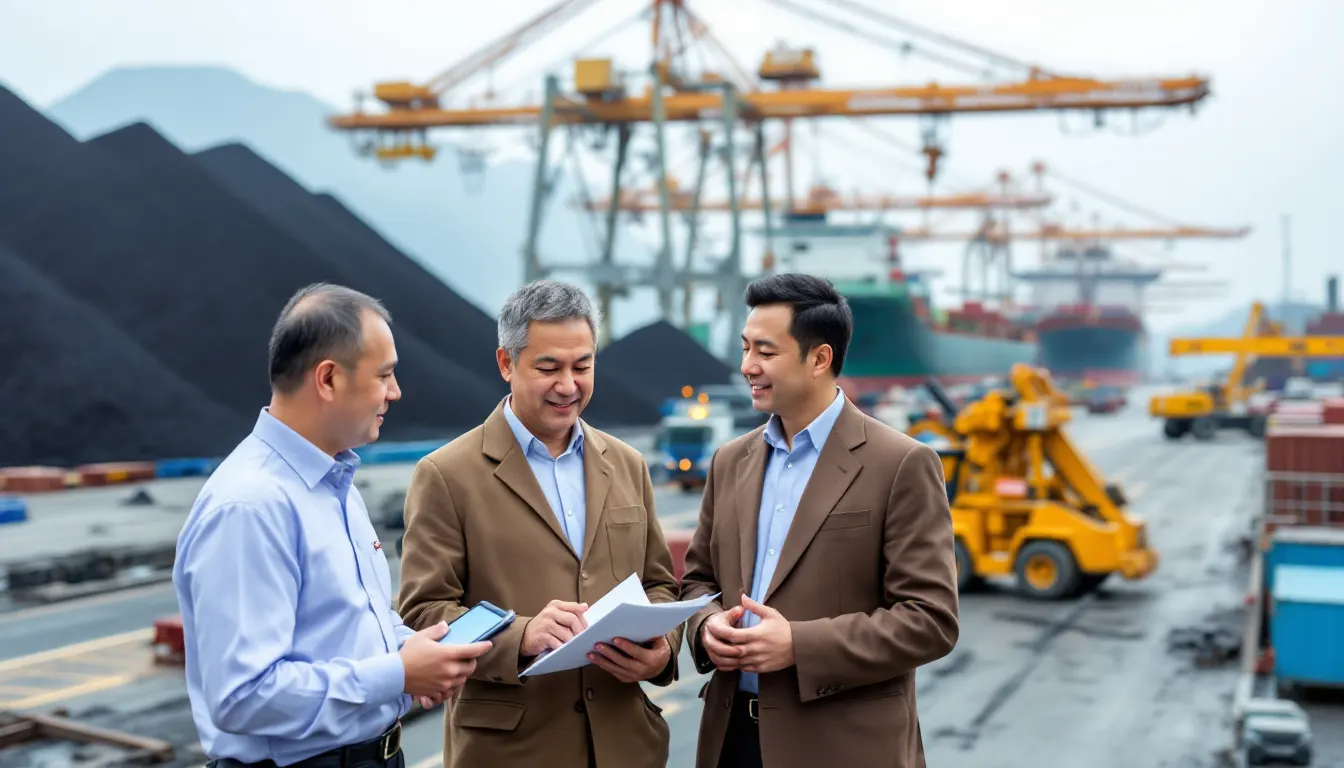Why China’s Iron Ore Trader Leadership Change Signals Strategic Leverage Shift

China controls over 70% of global iron ore imports, yet its market operations remain opaque compared to global peers.
Recently, China's state-backed iron ore buyer CMRG appointed a new general manager amid expanding global market influence.
This leadership change is more than personnel—it’s about repositioning strategic constraint within China’s iron ore trading system.
Control over commodity supply chains means defining market leverage and pricing power.
Conventional Views Miss The Real Strategic Play
Conventional wisdom frames such appointments as routine governance. Yet in resource trading, leadership reflects shifts in market leverage, not just management.
China faces pressures from global inflation and supply chain realignments, challenging its iron ore import strategy.
Unlike decentralized commodity traders in Australia or Brazil, CMRG is a centralized system, allowing China to apply top-down constraint repositioning—a concept explored in how BRICS reshapes global economic leverage.
Repositioning Constraints Through Leadership and System Control
The new general manager likely advances optimization of China's CMRG trading mechanisms, directly influencing iron ore sourcing, pricing, and distribution.
Compared to fragmented Western trading firms, centralized control enables CMRG to reduce transaction costs and leverage state-backed financing for better negotiation power.
This system design shifts leverage from pure volume buying to strategic market influence, creating compounding advantages difficult for rivals to replicate.
See parallels in China’s supply chain cost dynamics and how system constraints drive economic shifts.
What This Means For Global Commodity Markets
The leadership change signals tightened control over China’s iron ore sourcing strategy, enabling better anticipation of global price movements.
This foreknowledge systemically constrains competitors, forcing adjustments in production and export policies in countries like Australia and Brazil.
Operators should watch for how China’s strategic moves leverage state-backed capital and regulatory influence to reshape global commodity flows.
Mastery over supply chain systems defines market control beyond mere production scale.
Related Tools & Resources
For businesses and operators focused on optimizing supply chain management and production planning—key themes in the article about China's iron ore trading strategies—MrPeasy offers a practical manufacturing ERP solution. Streamlining inventory control and production processes can provide the kind of operational leverage that mirrors strategic moves in commodity markets like those discussed here. Learn more about MrPeasy →
Full Transparency: Some links in this article are affiliate partnerships. If you find value in the tools we recommend and decide to try them, we may earn a commission at no extra cost to you. We only recommend tools that align with the strategic thinking we share here. Think of it as supporting independent business analysis while discovering leverage in your own operations.
Frequently Asked Questions
How significant is China in the global iron ore import market?
China controls over 70% of global iron ore imports, making it the dominant player influencing global supply chains and pricing dynamics.
What impact does centralized control have on China's iron ore trading?
China's centralized iron ore trader, CMRG, benefits from top-down control, enabling optimization of trading mechanisms, reduced transaction costs, and stronger negotiation power backed by state financing.
Why is leadership change important in commodity trading companies like CMRG?
Leadership changes in firms like CMRG reflect strategic repositioning in market leverage rather than just routine governance, influencing sourcing, pricing, and distribution strategies.
How does China's iron ore strategy affect global commodity markets?
China's tightened control allows better anticipation of global price movements, constraining competitors and impacting export policies in countries such as Australia and Brazil.
What advantages does a centralized commodity trading system offer?
Centralized systems reduce transaction costs and leverage state-backed capital to shift market influence from volume buying to strategic control, creating advantages hard for decentralized rivals to replicate.
What external pressures is China facing that influence its iron ore import strategy?
China faces pressures from global inflation and supply chain realignments, challenging its existing iron ore import approaches and prompting strategic constraint repositioning.
How does China’s control over supply chains define its market leverage?
Control over commodity supply chains allows China to define market leverage and pricing power, effectively managing and influencing global economic leverage.
What resources can businesses use to optimize supply chain management like in commodity markets?
Manufacturing ERP solutions like MrPeasy help streamline inventory control and production planning, providing operational leverage similar to strategic moves seen in global commodity markets.

